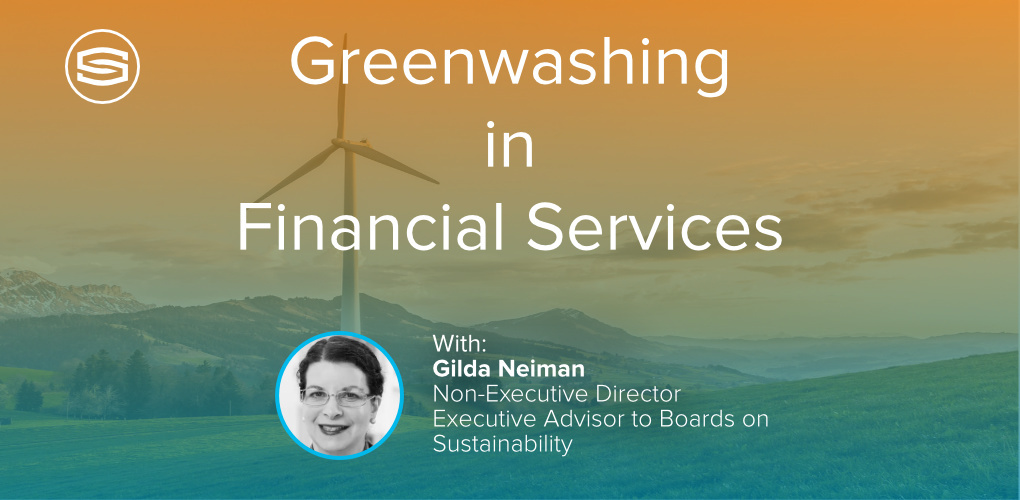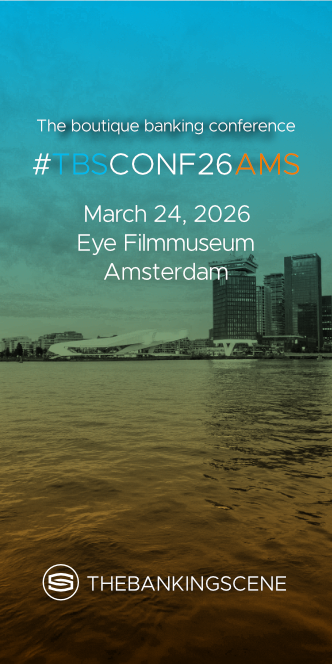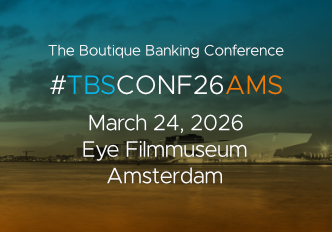
Insights & Opinions
Greenwashing in Financial Services
Tue, 08 Mar 2022


With sustainability on every organisation's strategic agenda, suddenly everyone communicates their contributions to comply with ESG criteria, sometimes for the wrong reasons. Instead of being a tool to help companies contribute to a better and greener future, many organisations narrow ESG down to a marketing tool to change the perception of their company.
Last week, we invited Gilda Neiman, Board member of Chapter Zero Brussels, a Climate Governance Initiative in collaboration with the World Economic Forum, and the Chairwoman of Greenomy, a one-stop sustainability reporting SaaS startup. She worked in the banking industry for 35 years, including as the Country CEO of Belgium at Citi.
"It's not surprising that greenwashing is happening because there isn't a level playing field with clear rules. I think we always come back to the question of regulation and the need to make it fair for everybody", said Gilda.
To kick off the discussion, Gilda shared an excellent and straightforward definition of greenwashing from Laurence Tubiana, CEO of the European Climate Foundation. She explained greenwashing as Businesses seeking to launder their image without making serious changes.
More regulation = more transparency
You heard it: greenwashing comes back to the question of regulation and the need to make it fair for everybody. What is missing today is a definite rulebook and level playing field. There is no clear, final framework. The currently existing rules are not widespread nor standardised.
Some companies interpret ESG to promote their existing, not always so sustainable, business. Others use ESG to do better, to contribute more than the status quo in favour of generations to come.
This stretch is problematic for the finance industry that heavily depends on reporting and labels. Vague regulations challenge asset managers to constantly review the definition of sustainability to avoid being labelled as greenwashers.
"If you look at the different sustainability rating agencies, their criteria are vastly different, and you end up with ratings that go from one opposite end to the other for the same company. I think, sadly, the result is incredibly random depending on which rating agency you choose ", said Gilda.
"But my philosophy is that we have to keep moving forward. If we do nothing, then we're not going to solve the climate crisis, which is the real reason for all of this. It's not to annoy companies and just meet the changing fashions. It's really about saving the planet and taking action as quickly as possible."
Initiatives like the ISSB, International Sustainability Standards Board, exemplify how sustainability is being incorporated in international reporting standard, next to the already existing financial ones. In parallel, Europe tries to go further in many aspects, which can be confusing.
The finance industry can use all the help they can get from new FinTech companies like Greenomy to help them to remain compliant with the latest regulations and societal expectations.
Mind the grey zone
As we discussed in a previous blog, there is a lot of grey zone in 'ESG'. What do you do with a windmill investment in the North Sea that provides 100% green energy, 0% carbon emissions but has an incredibly negative impact on biodiversity?
The audience in the virtual room was very clear in this dilemma: no one said to invest in it, a majority, including Gilda, voted "I don't know".
"It's the environment we need to protect, and it's all very intricately related. Protecting the climate, we're not going to succeed if we don't address the biodiversity at the same time, and this goes back to making integrated solutions", she explained. "Because I would hope that we can invest in that, but we need to be sure these other things are being addressed and that we're not making huge mistakes. But again, we need to move forward, so my answer was, "I don't know", because it depends on the case."
There is a reason why financial institutions like the European Investment Bank, HSBC, and others often rely on the knowledge and expertise of engineers to evaluate their clients' projects. Banks don't hold all the knowledge. They need new talent and external support for this transition and to help interpret whether the grey zone is balancing to white or black.
Perhaps the biggest challenge for banks in helping their clients transition to a greener economy is in the follow-up of projects. Daniel Verbruggen reminded us of the project BP Beyond 20 years ago. Unable to live up to the expectations, still today, the company has only 2%-3% of its revenue coming from renewable activities.
Is this greenwashing? Daniel: "I'm always careful with that word. Greenwashing sounds like money laundering or something like that. Maybe there are reasons why they failed? There is also a lot of shareholder pressure, not stakeholder activism, but shareholder pressure, which makes that companies have a very, very difficult time in justifying that agenda."
In his opinion, the challenge is to make sustainability part of the agenda on the board level, to convince them that it directly impacts the interest of shareholders.
The 1 trillion dollar question
Morningstar recently reported that they stripped 1 trillion of ESG funds for not being sustainable. According to our audience, this was, at best, a good estimation but probably an underestimation.
Gilda was not surprised: "I don't think it's something that can be scientifically assessed as it's about fear of being called out as misleading for their vague legal language." Many criteria remain vague and open for interpretation and with ISSB coming out later this year, she expects many more funds will follow being stripped. Funds that are borderline today will struggle tomorrow.
Gilda: "Apparently, the asset managers that are issuing those funds are nervous, because the rules are going to get more precise and they will have to become more prudent, as the regulators keep changing and refining the rules. Asset managers will realise they made mistakes being too cavalier with their representations. They will have to backtrack and understand they really can't do things the same way anymore".
Conclusion
Clearly, we're not near the end of greenwashing practices yes. Luckily, with every new case, the regulator has an extra argument to review the rules, to clarify the definitions used and guide every industry to a greener future.


